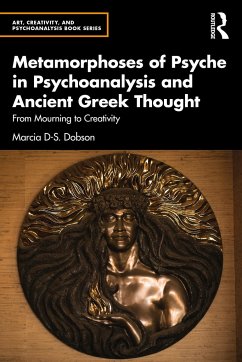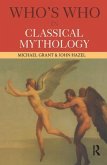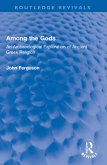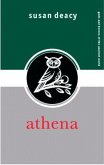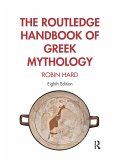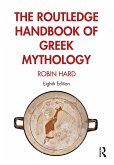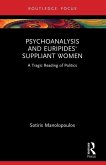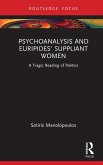This unusual book explores the transformative power of liminal experiences in ancient Greek texts, psychoanalytic theory, and the author's own life, to demonstrate how a contemporary understanding of ancient thought can illuminate modern psychoanalytic theory and practice especially as it relates to trauma, grief, and the development of psyche.
With the understanding that liminal experiencing involves engaging a psychic space outside the boundaries of ego organization, Dobson artfully interweaves autobiography, literary analysis, philosophical ontology, and psychoanalysis, to formulate a new paradigm for how to construct human beings, how to enliven and deepen personal and therapeutic experience, and how poetic language is the gateway to this magical realm of transformation. Alongside richly detailed case analyses, the author uses her dual expertise in psychoanalysis and ancient Greek literature to explore how the maternal and liminal in human life were displaced with the rise of Athens and a new way of being human - the rational citizen - and how this repression has resulted in diminished, constricted experiencing and the suppression of women throughout western history.
With a deep understanding of classical literature and psychoanalysis, and extensive clinical insights, this is essential reading for psychoanalysts, psychotherapists, classicists, and historians wishing to understand how ancient thought and modern psychoanalysis can interact.
With the understanding that liminal experiencing involves engaging a psychic space outside the boundaries of ego organization, Dobson artfully interweaves autobiography, literary analysis, philosophical ontology, and psychoanalysis, to formulate a new paradigm for how to construct human beings, how to enliven and deepen personal and therapeutic experience, and how poetic language is the gateway to this magical realm of transformation. Alongside richly detailed case analyses, the author uses her dual expertise in psychoanalysis and ancient Greek literature to explore how the maternal and liminal in human life were displaced with the rise of Athens and a new way of being human - the rational citizen - and how this repression has resulted in diminished, constricted experiencing and the suppression of women throughout western history.
With a deep understanding of classical literature and psychoanalysis, and extensive clinical insights, this is essential reading for psychoanalysts, psychotherapists, classicists, and historians wishing to understand how ancient thought and modern psychoanalysis can interact.
'In a book that wells up from the depths of personal loss as well as the ocean of transpersonal experience, Marcia D-S. Dobson forges an intimate bond with the reader through her vatic voice. As both a professor of classics and a healer of souls, she carries her caduceus across the threshold between not only the conscious and unconscious but also the archaic and analytic.'
Peter L. Rudnytsky, University of Florida and the Chicago Psychoanalytic Institute, author of Mutual Analysis: Ferenczi, Severn, and the Origins of Trauma Theory
'This uplifting volume aims to restore the transformative realms of sacred liminality by summoning the feminine-maternal element as a sublime source of healing and the evolving of the human spirit. It will bring its grateful readers a joyful faith in creative subjectivity and an ethical humanity.'
Raanan Kulka, head, Human Spirit - Psychoanalytic-Buddhist Training Program, Israel, and author of Kohut 2019 Memorial Lecture, Selfobject psychology for a Troubled World
Peter L. Rudnytsky, University of Florida and the Chicago Psychoanalytic Institute, author of Mutual Analysis: Ferenczi, Severn, and the Origins of Trauma Theory
'This uplifting volume aims to restore the transformative realms of sacred liminality by summoning the feminine-maternal element as a sublime source of healing and the evolving of the human spirit. It will bring its grateful readers a joyful faith in creative subjectivity and an ethical humanity.'
Raanan Kulka, head, Human Spirit - Psychoanalytic-Buddhist Training Program, Israel, and author of Kohut 2019 Memorial Lecture, Selfobject psychology for a Troubled World

